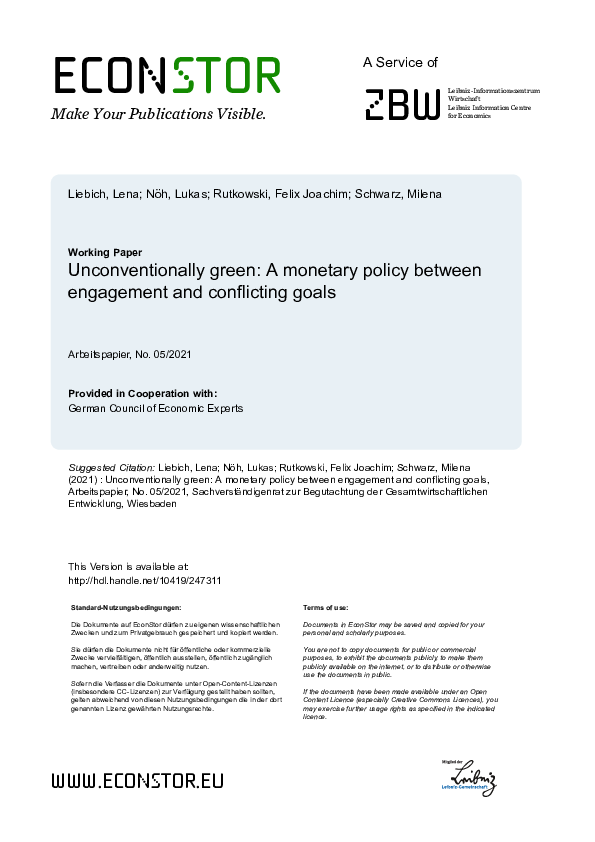Unconventionally green: A monetary policy between engagement and conflicting goals

Liebich, Lena ; Nöh, Lukas ; Rutkowski, Felix Joachim ; Schwarz, Milena
ZBW - Leibniz
2021
28 p.
climate change ; decarbonization ; investment ; sustainable development ; ECB ; monetary policy
Arbeitspapier
05/2021
Financing and monetary policy
http://hdl.handle.net/10419/247311
English
Bibliogr.
"In light of its recently completed strategy review, the ECB has presented a climate action plan, which schedules the consideration of climate criteria within the corporate sector purchase program (CSPP). We study the potential role of the ECB in supporting the transition to a low-carbon economy by decarbonizing the CSPP. We demonstrate that the carbon intensity of CSPP purchases is basically determined by three factors: First, by the CSPP-eligibility criteria as these tend to exclude bonds from low-emission sectors. Second, by the underlying structure of the bond market as this tends to be skewed towards carbon-intensive sectors. Third, among the eligible bonds, the ECB tends to select those from relatively emission-intensive sectors. Consequently, to decarbonize the CSPP, the ECB can theoretically act along these three lines. That is: Adjust the CSPP-eligibility criteria to expand the range of eligible low-carbon assets. Revise the principle of market neutrality to tilt the CSPP portfolio towards low-carbon companies. Or purchase so far neglected low-carbon bonds within the current eligibility and market neutrality framework. We analyze chances and discuss risks with regard to all three options. As we find that all approaches to decarbonize the CSPP have either very limited effects on the carbon intensity of the CSPP portfolio or are associated with significant theoretical and practical concerns, we conclude that the contributions to the success of an active green monetary policy that goes beyond the principle of market neutrality are not guaranteed, while at the same time risks arise for a monetary policy oriented towards price level stability. In contrast, by linking the CSPP to climate-related disclosures, the ECB can contribute to increased transparency and improved risk management and has an important and potentially climate-effective lever in hand that is independent of revising the principle of market neutrality."
Digital
The ETUI is co-funded by the European Union. Views and opinions expressed are however those of the author(s) only and do not necessarily reflect those of the European Union or the ETUI.